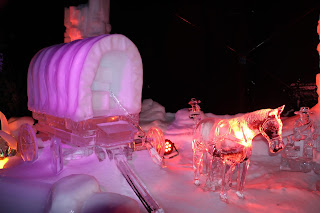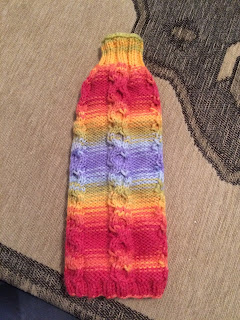 |
| 'Frozen Tears' |
Unless you are living under a rock or are totally not interested in our past: this/last week was the 75th anniversary of the liberation of Auschwitz. A few years ago, my sister and I visited that awful place. Another place we visited during that holiday was Kamp Westerbork in the Netherlands. A transit camp for Dutch Jews and Dutch Gypsies, who were sent to Sobibor, Auschwitz (both in Poland), Terezin (or Theresienstadt in Czechia) and later when the war started to turn to Bergen Belsen (Germany) which we also visited.
Yesterday I made my way back to Kamp Westerbork with a busload of 14 and 15 year olds. As part of their history lessons, they were going to get a tour of the camp. First they visited the small museum (which had a temporary exhibition about the Roma and Sinti gypsies in the Netherlands, next to the regular exhibition). After that they went to the camp itself, where they got a tour and more explanations.
 |
| The speaker, Mr Hans Peeper translation of verse at the bottom |
After lunch there was to be a guest speaker. A gentleman who had actually survived Bergen Belsen as a 6 year old boy. He was there to tell us (I asked whether I could join) about his life prior, during and after Bergen Belsen. He was only four when he and his family arrived in Westerbork and after a year there, they were sent to Bergen Belsen. It didn't have gas chambers, but there were too many people on too small an area, not enough food, not enough shelter and no medical care whatsoever.
Even though he was only a small boy, he stayed with his father and only saw his mother once more, when they took him to see her on her death bed. His father got sick after that and he and his dad stayed in the 'sick quarters', which saved their lives most likely. As the Allied forces got nearer, the Nazis got more desperate and they loaded up a train to be sent on a wild goose chase to nowhere. Not long after that, the British arrived and liberated the camp.
Mr Peeper told about his life after the war as well. He was by then six years old and he and his father made their way back to the Netherlands, where his father was nursed back to health. He didn't loose all of his family, as one aunt and uncle and their children had gone into hiding and had survived. All the others were killed.
In the end he made a good life for himself, marrying, having two children and now four grandchildren. It is only lately he has begun to talk about his life and how the war changed it forever. And his message to all who were present: don't let one person tell you that somebody is bad just because of colour, race, religion, gender or whatever. Get to know people and make up your own mind!
Come with stories tonight
about how the war has gone
Repeat them a hundred times
And I will weep for every one
Part of the poem "Peace" by Leo Vrooman

















































